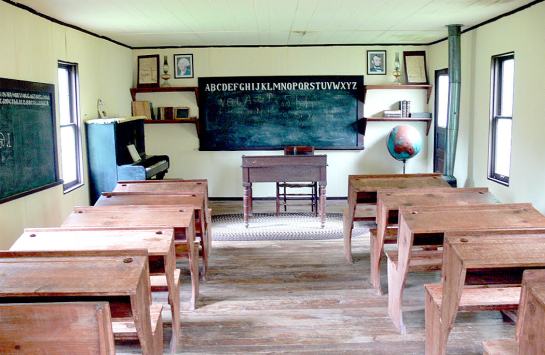
.
by Richard Nilsen
.
When I was young, in the late ’60s, headed off to college — and knew everything — I was an idiot. I was part of a generation that decided it knew better than our schools what it was we should study. And, unfortunately, in that early, more polite culture war, we won. I have regretted it ever since.
.
In particular, my generation rebelled against what was called the “core curriculum,” or required courses, which mandated that college students split their course work over a wide range of disciplines. We were required to take — usually in the first two years of study — classes in literature, science, math, a foreign language, history, and physical ed. After that, we could declare a major and concentrate our studies.
.
I was particularly headstrong. Why should I be required to take courses in subjects in which I had no interest — or ability? Let me tell you, I was a thorn in the side of the academic dean, visiting his office regularly to instruct him in what college should be.
.
Now, it should be recognized that there truly were a lot of stupid rules back then, most leftover from an earlier age. At my college, women were required to wear panty hose and skirts to class; slacks were prohibited. Women were not allowed to smoke “in transit,” that is, while walking across campus. Nor could they leave campus overnight without written permission from parents. It was really quite Victorian.
.
And in the eyes of many of us, such rules were conflated with other things, such as the core curriculum and the Vietnam war. All part of the oppression of the ruling class. Well, like I said, we won that culture war and now even the dorms are co-ed. And the core curriculum is vestigial, and the overseas war and the draft finally came to an ignominious end. Most of that was to the good. The ’60s were a pivot point in history.
.
I would never want to return to that era of conformity, sexism, racism and segregation. Much of what my generation fought for became the norm for those who came after. (I write that with certain anxiety as the current, nastier culture wars are fueled by a reactionary grievance that would like to return to those benighted injustices.)
.
But for all that, I now mourn the loss of the core curriculum. The concept recognized something about the purpose of education.
.

The March 6 edition of The New Yorker features a long article about the slow demise in higher education of the humanities. Enrollment in humanities courses has dropped by a third in the past 20 years, and in some of the larger, more prestigious universities, by more than half. In its place, studies of STEM subjects have jumped (STEM being Science, Technology, Engineering and Math).
.
There is no doubting the importance of such disciplines — modern life depends on them — but speaking as a former English major, I have to feel something has been missing in our current idea of education. More and more, it seems that college is designed as a kind of glorified trade school, whose mission is to prepare students for jobs. There are lots of jobs in STEM subjects, and not too many for philosophy majors.
.
But getting a job is a piss poor raison d’etre. We are now trained in what to learn and how, but not why. We once thought we should be allowed to study only those things we wanted, now the thought is to study only those things that will get us a career. They both miss the point of a liberal education.
.
A job will help us get through life and provide food for the table. But it will not provide a reason to be alive. A real education will expand the world, provide new experience, show you possibilities you hadn’t known to exist. Education doesn’t fill the container; it makes the container larger.
.
I have always been grateful to my education. It has opened up my life, given me a wider perspective, shown me how to become more human. For, as John Dewey pointed out, “Education is a process of living, and not a preparation for future living.”
.
The opposite of education is to become locked within yourself, unaware not only of the rest of the world, but the rest of your own potential. Or as Sydney J. Harris put it, “The whole purpose of education is to turn mirrors into windows.” In other words to escape the prison of our self and burst into the wider world.
.
The humanities as a discipline is designed to unlock all that. You come into contact with the interior worlds of other people when you read novels or see plays; you discover what mistakes have been made before to help you avoid them again, when you study history; you discover new ways of organizing the information of the world when you learn a second language. Both the world and the self are larger than you had thought. All this is to enlarge you and enlarge your world. It makes life richer, more meaningful and helps make you a better person.
.
Not a learned person, but a learning one. When I was a writer and critic, I always said that what I wanted to share with my readers not what I knew, but what I had learned. And I hope I keep learning. Just as I hope to keep breathing.
.
.
Richard Nilsen inspired many ideas and memories at the salons he presented through the years when he was an arts critic and movie, travel, and features writer at The Arizona Republic. A few years ago, Richard moved to North Carolina. We want to continue our connection with Richard and have asked him to be a regular contributor to the Spirit of the Senses Journal. We asked Richard to write short essays that were inspired by the salons.
